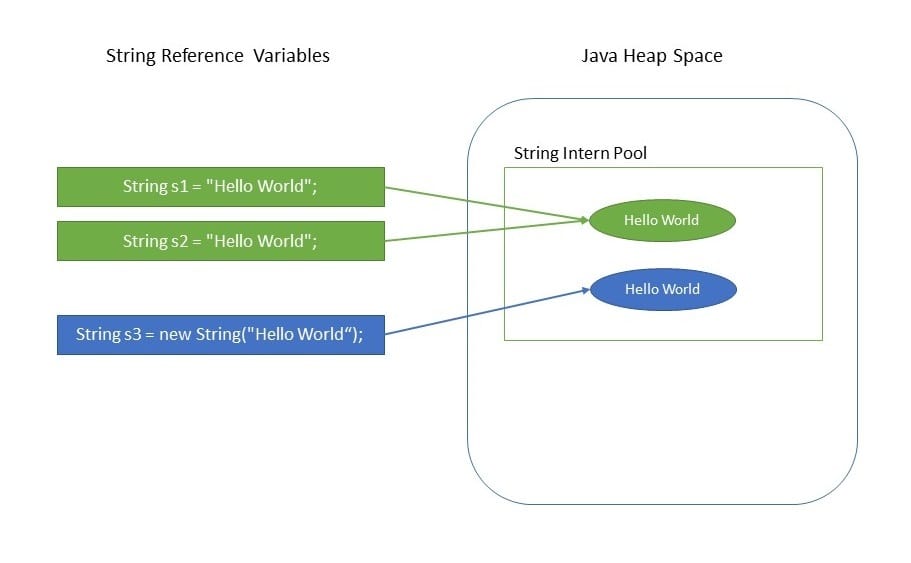Why Are Strings Immutable in Java? Discovering the Layout Choices
Why Are Strings Immutable in Java? Discovering the Layout Choices
Blog Article
Checking Out the Advantages of Unalterable Strings in Modern Programming Paradigms
In the world of modern programming standards, the principle of unalterable strings stands as a foundation of robust software development. The advantages they supply go past simple comfort; they essentially alter the way information is dealt with within applications. By taking on immutable strings, designers can ensure boosted information honesty, enhanced string safety, streamlined debugging processes, boosted safety measures, and reliable performance optimization. These advantages act as a testament to the extensive influence that welcoming immutability can have on the dependability and efficiency of software program systems.
Enhanced Information Honesty

By stopping the modification of string items, immutability eliminates the risk of unintentional adjustments to the information they hold. This not just improves the safety of the information yet likewise boosts the dependability of the code that relies on these strings.
Immutability likewise supports much safer multithreading environments, as concurrent accessibility to immutable strings does not posture the risk of information corruption through simultaneous adjustments. This residential property simplifies the procedure of taking care of strings in parallel programming scenarios.
Fundamentally, immutability works as a safety shield around the information saved within strings, improving their stability by making sure that once specified, their values stay unmodified throughout the program's execution.

Boosted Thread Security
Unalterable strings improve the string safety of programs by making certain that when a string things is produced, its worth can not be changed. This building removes the risk of concurrent strings trying to modify the exact same string concurrently, which might bring about data corruption or inconsistent states in the program - Why are strings immutable in Java?. In a multi-threaded setting, where multiple threads gain access to and adjust information concurrently, the immutability of strings provides a degree of safety by ensuring that the information remains unchanged throughout its lifecycle
Simplified Debugging Procedures
Provided the improved string security promoted by immutable strings, a considerable advantage emerges in the world of simplified debugging processes. Immutable strings, once created, can not be altered, making it simpler to trace the circulation of information and identify the resource of bugs in a program. This immutability makes sure that strings stay consistent throughout the execution of the program, decreasing the possibility of unanticipated changes that could cause errors.
When debugging with mutable strings, developers commonly encounter problems where a string's worth is changed inadvertently, making it challenging to determine the origin of an insect. Nonetheless, with immutable strings, the information continues to be the same, enabling programmers to concentrate on assessing the real reasoning of the code as opposed to locating where and when a string was changed inaccurately.
Additionally, unalterable strings simplify the debugging process by allowing simpler reproduction of insects. Because immutable strings do not alter state, programmers can recreate and research pests better, resulting in quicker identification and resolution of concerns within the codebase. This structured debugging process inevitably adds to greater software application quality and improved general growth performance.

Boosted Safety And Security Actions
Enhancing data protection and fortifying system integrity, the usage of unalterable strings in software applications adds significantly to enhanced protection steps. Unalterable strings, once created, can not be modified, giving a crucial protection versus harmful tampering or unapproved access. By ensuring that delicate data stored in strings remains unchanged throughout the program's implementation, the threat of data violations or shot attacks is substantially lowered. Why are strings immutable in Java?. Unalterable strings additionally play Visit Your URL a vital role in stopping usual protection susceptabilities such as barrier overflows and SQL shot attacks, as efforts to adjust string information at runtime are naturally restricted.
Furthermore, the immutability of strings boosts the predictability of program actions, making it simpler to validate inputs and stop unexpected modifications that could compromise safety. This predictability streamlines the procedure of auditing and validating code, making it possible for developers to recognize potential security loopholes much more successfully. On the whole, integrating unalterable strings into software program development techniques not only enhances the robustness and integrity of applications but also reinforces their strength versus protection dangers.
Reliable Performance Optimization
Building upon the foundation of increased safety procedures achieved via the utilization of immutable strings, a vital element to take into consideration in software program advancement is effective efficiency optimization. When managing mutable strings, procedures like concatenation or substring production often lead to the development of brand-new string objects, causing memory overhead and increased handling time. Nevertheless, with immutable strings, these procedures can be maximized to boost performance. By allowing strings to remain unchangeable and constant, unalterable strings assist in better memory monitoring and caching chances, ultimately enhancing the general effectiveness of the software.
Immutable strings likewise play an essential function in multithreaded environments by promoting string safety. Why are strings immutable in Java?. Given that immutable strings can not be changed when created, they can be shared across strings without the danger of unanticipated modifications, reducing the requirement for synchronization systems and boosting concurrency. Additionally, immutable strings streamline debugging processes as developers can rely on that a string's value will remain constant throughout the program's execution, eliminating prospective errors brought on by mutable state adjustments. In final thought, using unalterable strings not just improves safety and security yet likewise substantially adds to the efficient efficiency optimization of contemporary software systems.
Conclusion
In conclusion, the advantages of making use of immutable visit this page strings in modern shows standards can not be overemphasized. Enhanced information stability, enhanced thread safety and security, streamlined debugging procedures, enhanced safety procedures, and efficient performance optimization all add to the general performance of shows jobs. By incorporating immutable strings into shows techniques, programmers can take advantage of a more reliable and durable codebase.
Immutability, an essential attribute of strings in programs languages such as Java and Python, makes sure that when a string things is developed, it check my source can not be modified or modified.Unalterable strings improve the string safety of programs by ensuring that when a string object is developed, its value can not be customized. Immutable strings additionally play a crucial function in preventing typical protection susceptabilities such as buffer overflows and SQL injection strikes, as efforts to control string information at runtime are inherently restricted.
By enabling strings to remain constant and unchangeable, immutable strings help with better memory administration and caching possibilities, eventually boosting the general effectiveness of the software program.
Immutable strings simplify debugging procedures as developers can trust that a string's worth will continue to be regular throughout the program's execution, eliminating potential mistakes created by mutable state modifications.
Report this page